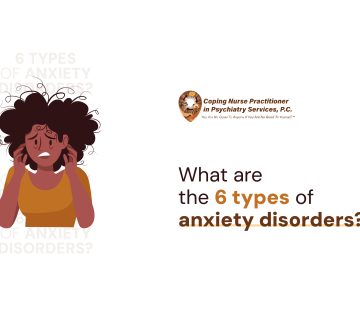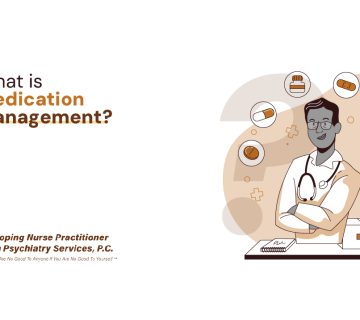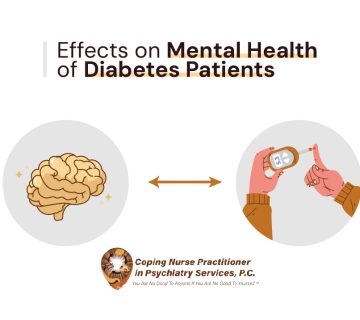You’ve worked hard to get into college, and now you’re beginning a totally new phase of your life. Going to college is exciting, whether you’ve moved thousands of miles away or attending in your own town.
However, going to college is also a time of your life when you may discover new mental health challenges too. Many college students struggle with anxiety, often for the first time in their lives.
Students face the perfect storm of anxiety-producing circumstances, from being responsible for managing their own schedules to financial worries and of course, the pressure of schoolwork. Dr. Judy E. Vansiea of Coping Nurse Practitioner in Psychiatry Services explains more about how to manage your mental health.
Symptoms of anxiety
If you’ve never had anxiety before, you might not know how to recognize the symptoms. You may just feel worried and have other physical symptoms as well but not realize they’re signs of anxiety. Watch for these symptoms:
- Inability to focus
- Feeling uneasy or nervous
- Uncontrollable worries
- Sleep disturbances (either sleeping too much or insomnia)
- Stomach problems
- Changes in appetite
- Missing classes or assignments
- Isolation from family and friends
- Cycles of negative thoughts
If you have any or all of these symptoms, you may have anxiety. Take a moment to learn some tips for managing your anxiety.
Exercise
Regardless of your previous exercise habits, now is a good time to start an exercise regimen or re-commit to it. Getting regular exercise is a crucial part of maintaining solid mental health.
If you have mental health issues, the most important thing you should do is move your body. You don’t have to become a gym rat to get the benefit — even taking a walk around campus is enough.
Approach rather than avoid
Students often tend to avoid what scares them, but this is the wrong thing to do. When you’re overwhelmed by too many assignments, you may want to take a nap and make it all go away.
Instead, you’re much better off if you face what you’re afraid of head on, and just do what needs to be done. Take on your assignments one at a time.
Maintain healthy self-care habits
College may be the first time in your life that you’re responsible for yourself. At first, you might find yourself eating a lot of junk food and fast food because you can pick whatever you want to eat. But you’ll end up feeling worse in a lot of ways.
Similarly, you’ll want to stick to as normal of a sleep schedule as possible, even if you need to miss a couple of parties. You will need to limit your caffeine and alcohol intake, but you do need to make an effort to drink enough water.
Make time for friends
One of the best things about college is meeting new people. If you spend all of your time focused on your studies, you might miss out on the chance to broaden your horizons by meeting new people.
Not only will you meet new people who may have a positive influence on the rest of your life, but you’ll also get the benefit from having social support. Having friends can make your life a lot better, and they can offer a listening ear when you need to talk. That goes a long way toward helping with anxiety.
Look for resources on campus
One of the best things about college is that many resources are available to students. You should take advantage of them. Your college has counselors and support groups that can help you learn how to manage your anxiety — and especially your class load too.
If you’ve recently started college and you’re feeling anxiety, you should know that it’s manageable. If you need extra help, you may need therapy and medication too, but there’s nothing wrong with tapping into all of the support you can get.
Contact Dr. Judy E. Vansiea at Coping Nurse Practitioner in Psychiatry Services in Uniondale, New York, or through telemental health in New York or Kansas to request an appointment online.





No comment